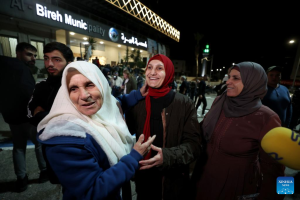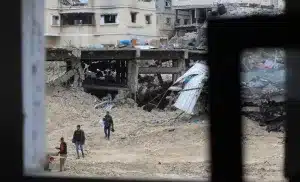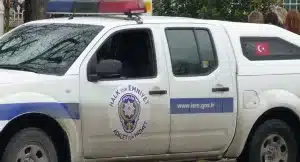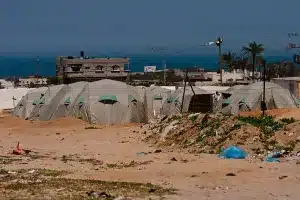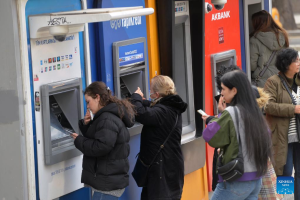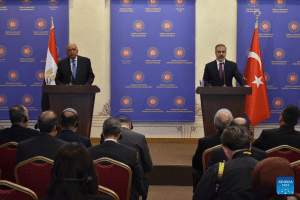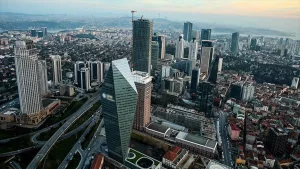The recovery from the earthquakes that struck Türkiye one year ago will continue to require time, as local municipalities encounter various challenges in the reconstruction process, said Lutfu Savas, the mayor of Türkiye’s Hatay, the worst-hit province in the earthquakes.
A powerful 7.8-magnitude earthquake jolted southern Türkiye and Syria at midnight on Feb. 6, 2023, followed by a 7.7-magnitude one the next afternoon.
In Türkiye, the quakes devastated 11 provinces, killing more than 53,000 people and displacing millions.
“There are 911 thousand flats in Hatay, more than 266 thousand of them were destroyed or severely damaged during the earthquakes,” Savas told Xinhua, highlighting Hatay as the most severely affected area.
“Unfortunately, we lost nearly 25 thousand lives,” he said.
According to the mayor, the devastating earthquakes not only resulted in the destruction of cities and loss of lives but also inflicted mental trauma on individuals who lost their loved ones.
“Some of the people of Hatay, who suffered very deep wounds, decided to continue their lives by going out of the city or abroad,” Savas said.
For residents to return to Hatay, the mayor added, local government is striving to establish a more livable environment with improved conditions in education, health, and the economy.
“Unfortunately, the disaster we experienced is not at a level that local municipalities can overcome,” he said, emphasizing that the recovery process has been fraught with numerous challenges.
The water transmission lines, sewage networks, and rainwater drainage channels have become nearly unusable. Additionally, there are numerous obstacles in disposing of damaged buildings. These issues have significantly increased the workload of the reconstruction efforts, Savas added.
“Rebuilding our city, where so much destruction has occurred, will be very difficult and will take time. We need to make new plans by gathering the scientific community, official institutions, NGOs, in short, everyone under one roof,” he said. “We need to act in the long term and take steps in a holistic manner.”
Besides, he noted, “the public needs to be informed a little more about the work of the central government. I believe it is important for citizens to find answers to all their questions.”
For all the difficulties, Savas affirmed the government’s steadfast dedication to building a brighter future for Hatay.
“We established the ‘Hatay Planning Center’ in partnership with the Istanbul Metropolitan Municipality. We organized workshops together with Türkiye’s important universities and experts. We started to plan Hatay and its future with a transparent approach, based on scientific data … and responding to local demands and needs,” he said.


